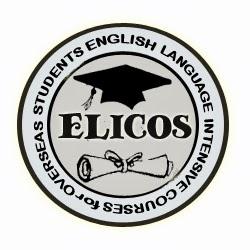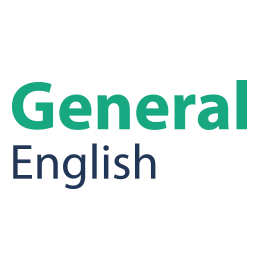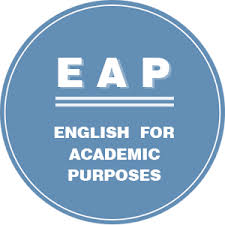English Courses
English Courses
Learning English in Australia through university or college guarantees you the highest quality of education in return for your tuition fee. In addition, speaking english on a day-to-day basis will also help to enhance your skills even better. Australian University and College English courses have been developed to meet the needs of English language learners of all levels. This includes programs for:


ELICOS
English Language Intensive Courses for Overseas Students (ELICOS) in Australia provide an excellent introduction to English studies for academic studies, business, or recreation. There are many ELICOS Australian English schools to choose from, ranging from small privately run colleges with small group tuition; secondary schools preparing students for high school studies; to large university or vocational education centres which will offer English in its own right or as a transition to any number of other tertiary or further training programs.
In 2019, the EA survey of 166 institutions reported that 169,864 ELICOS students studying in Australia experienced a 5% decline from nearly 180,000 in 2018. Most students (70%) studying ELICOS were on student visas followed by visitor (20%), working holiday (6%) and other visas (5%). For more information, please check Visit Source
General English
General English is an ideal way to learn to use English effectively in an everyday environment.
Holmes Institute offers 6 levels of general English with all levels carefully designed to cover the macro-skills of speaking, listening, reading and writing as well as grammar and pronunciation practice. General English focuses on developing communication skills to live and work in Australia and abroad.
It is mapped to the Common European Framework of Reference for Languages (CEFR) and is offered at all levels – A1 to C2. General English is recommended to be taken in 11 week blocks and its classes are usually 20 hours per week. Classes may be held in the morning, afternoon or evening.
- Average class size is 24 students
- Student/teacher ratio is 11.75
General English course focuses on:
- Improving Speaking skills, and developing accurate Pronunciation
- Understanding Grammar, and learning when and how to use it
- Listening and Reading for the main idea and detailed information
- Building Vocabulary and Slang
- Using body language correctly
- General Writing development
- Understanding the Culture of English-speaking countries
- Understanding native and non-native English speakers
- Conversational English


IELTS Preparation
International English Language Testing System (IELTS) is an international standardised test of English language proficiency. It is jointly managed by University of Cambridge ESOL Examinations, the British Council, and IDP Education Pty Ltd. There are two versions of the IELTS:
- The Academic Version: intended for those who want to enrol in universities and other institutions of higher education. It is also used for professional recognition in fields such as medicine.
- The General Training Version: intended for those planning to undertake non-academic training or to gain work experience.
For studying, working and living in Australia, there are different IELTS requirements. You need to find out what the specific requirement you need to meet.
By studying IELTS in Australia, you will gain a huge range of life skills such as problem solving, leading diverse teams of people, and applying your English to real-world situations. With a multicultural mix of students in our educational facilities, you will learn the world’s language in a truly international environment.
English for Academic Purposes (EAP)
English for academic purposes (EAP) entails training students, usually in a higher education setting, to use language appropriately for study. It is one of the most common forms of English for specific purposes (ESP). An EAP program focuses instruction on skills required to perform in an English-speaking academic context across core subject areas generally encountered in a university setting. In common with most language teaching, EAP instruction teaches vocabulary, grammar and the four skills (reading, writing, speaking, and listening). EAP usually tries to tie these to the specific study needs of students.
What is the main benefit of taking an EAP course?
- Over 95% graduation rates.
- Rapid progress in academic reading, writing, speaking and listening.
- Practice in lecture and tutorial note-taking.
- Direct entry to TAFE, undergraduate or postgraduate courses.
- Extra support for students.


English for Travel
International travel is difficult without English. Even when you are not visiting an English-speaking country, you will find yourself needing English to speak to hotel staff, immigration officials, taxi drivers, and people on the street.
Trips are a wonderful opportunity to practice your English in real-life situations. So before you’ve packed your bags, have a look at our website and contact us for further information about how to enrol in an English course. A Travel English Course will enable you to have a great balance between study and travel. This will give you an opportunity to practice learned English straight away.
English for Employment
English for Employment program is intended for skilled migrants who need to improve their English to enter the Australian labour market. This program will prepare you for daily communication and provide greater understanding of the Australian workplace culture and job seeking strategies. English for Employment is free for eligible migrants and funded by the NSW Government. Entry is at IELTS 5.5 – 6 or equivalent English level. Classes are delivered both part-time and full-time.
The outline of the content of this course include:
- English language support
- Developing awareness of workplace culture and trends in Australia
- Finding your fit in your field of expertise
- Developing a career portfolio including your resume and cover letter
- Strategies to identify employment opportunities
- Preparing for the job interview
- Career management skills
- Marketing yourself effectively

